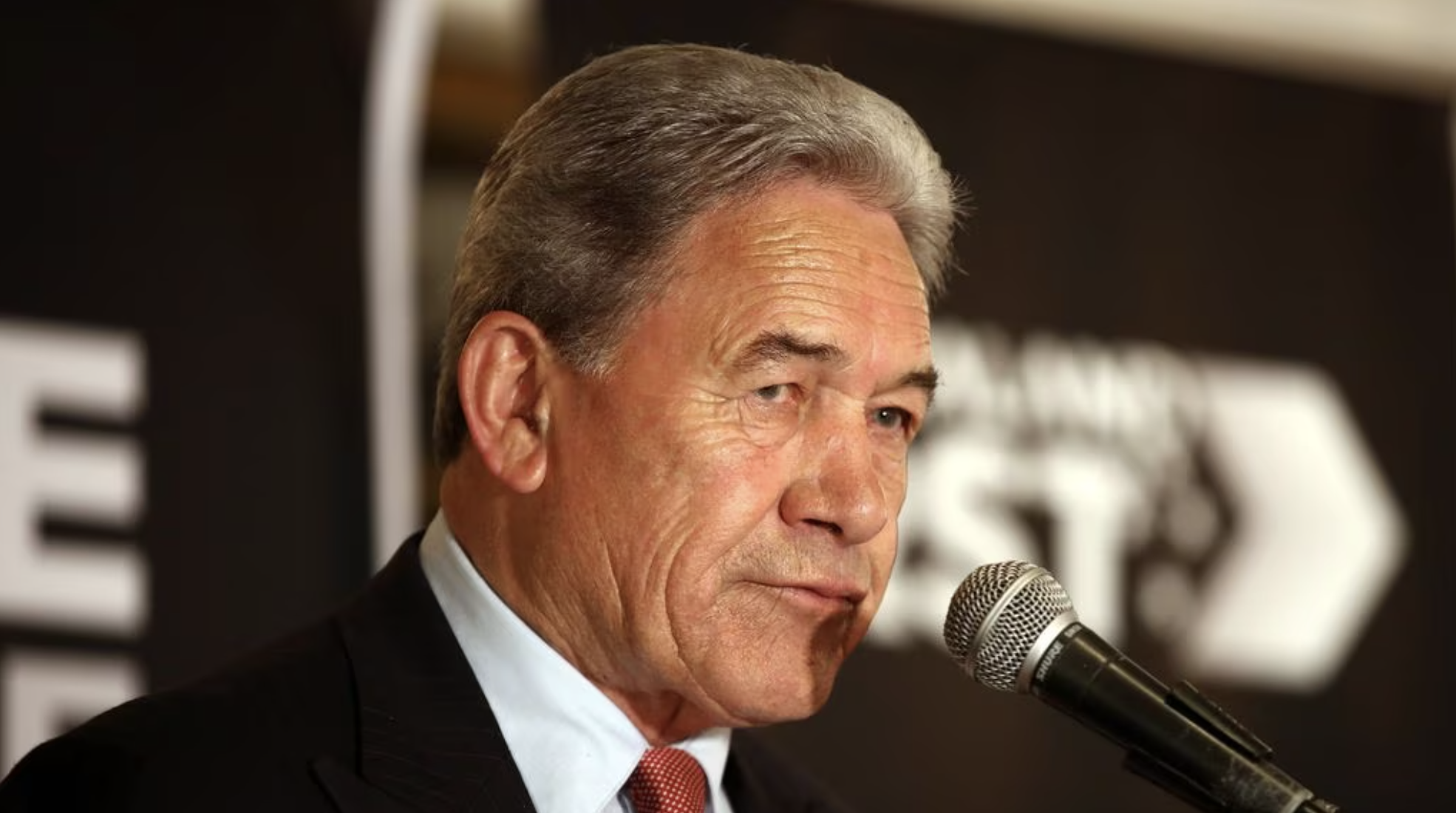OPINION
Next weekend, both New Zealanders and Australians will go to the polls: one in a general election, the other in a referendum. In both cases, there’s a strong case that the future of our countries as liberal democracies is at stake.
Australians are voting on whether or not to insert a racially-exclusive clause in our Constitution. For New Zealanders, the general election, as general elections necessarily must, covers many major issues — the economy, crime — one issue is particularly at stake: co-governance. In both cases, the principle is the same: does a racial minority merit special Constitutional privileges? Is the fundamental principal of liberal democracy — one person, one vote, equal under the law — reconcilable with governance by unelected tribes?
NZ First’s Winston Peters doesn’t think so, for either country.
Mr Peters, whose father was Maori and mother Scottish, draws a comparison between the Indigenous voice and the contentious issue in NZ of shared governance with Maori tribes, which he describes as an “attack on democracy.” He warns that Australians should take a lesson from co-governance, which sees powerful but unelected Maori Iwi in shared decision making with elected officials over issues at both local and national levels.
And not for the betterment of ordinary people, Maori or non, Aboriginal or non.
Likely New Zealand election kingmaker Winston Peters has accused voice campaigners in Australia of failing to reflect the original ideals of Aboriginal rights crusader Charlie Perkins and his fellow Freedom Riders, saying the Yes proposal represents only an elite few.
Mr Peters, leader of the NZ First party, which is enjoying a resurgence in New Zealand, told The Australian the voice could not represent the myriad Indigenous voices around the country and would do nothing to improve lives in remote communities.
“I wouldn’t vote for the voice on the number one premise that there’s no one Aboriginal voice in Australia, just as there’s no one Maori voice in this country,” he said.
Australians, he says, should look across the ditch — and run a mile from what’s clearly failing in New Zealand, no matter what co-governance troughers might say.
“The lessons Australians can draw are that something that has been represented there as working in New Zealand is not working in New Zealand,” he said.
The Australian
If polls are accurate, a great many Australians agree. All polls indicate that the referendum is headed for defeat. Of all the reasons to reject, it seems that basic repugnance at the idea of a race-based Constitutional body is at the forefront.
Say what you want about the constitutional implications – and I have said plenty. Sure, raise questions about whether the voice will change outcomes in the most disadvantaged communities; the Yes side has asserted it will, rather than explained how.
However, the biggest idea that demolishes the Yes case is one simple principle: in a healthy egalitarian democracy every one of us should be treated equally in the Constitution.
It doesn’t matter what sex we are, what religion we choose, our race, ethnicity or culture, where we came from, how long we have lived on this continent – we have the same vote in our system of government.
Australians may not rally in the streets to defend this principle, nor wear their egalitarian sentiments on their sleeve, let alone a T-shirt. But a constitutional change undermining this principle just won’t sit right with them.
That’s why the voice has tanked in the polls: it divides people into two different classes. Those who get access to special rights from this body called the voice. And the rest of the country who don’t. It really is that simple.
The Australian
Winston Peters agrees — and sees clearer than leftist spruikers in Australia how and why the Voice is not just morally repugnant, but doomed to failure.
“It’s not just the unequalness (between races) but the view that such a separation and duality will deliver better services to (Indigenous peoples) when the evidence is all to the contrary.
“If you have an authority that’s never subject to constituency assessment like an election, there are no consequences for people making mistakes […]
“There’s a parallel in NZ with Jacinta Price’s argument against the voice. The people who suffer at the critical level of housing, health, education are the very people these elitists are framing policy for but it never gets to them.”
Winston Peters back in government also holds promise for not just Australia, but the wider Pacific region.
He also agrees with [Act’s David Seymour] that NZ should pour money into its defence capability and aim to join Australia, the US and UK in their defence technology pact, although he warns cost could factor against joining Pillar Two of AUKUS.
“On the issue of (international rules of) law and order and democracy you don’t have the choice of picking sides, you’ve got to defend it or not,” he says. “And to play your part and be seen as pulling your weight, that’s important. If you’re going to have a defence system, and we must, it’s got to be of the highest quality. There’s no plan B in that context.”
The Australian
Next challenge: getting an Australian government to realise the same.

